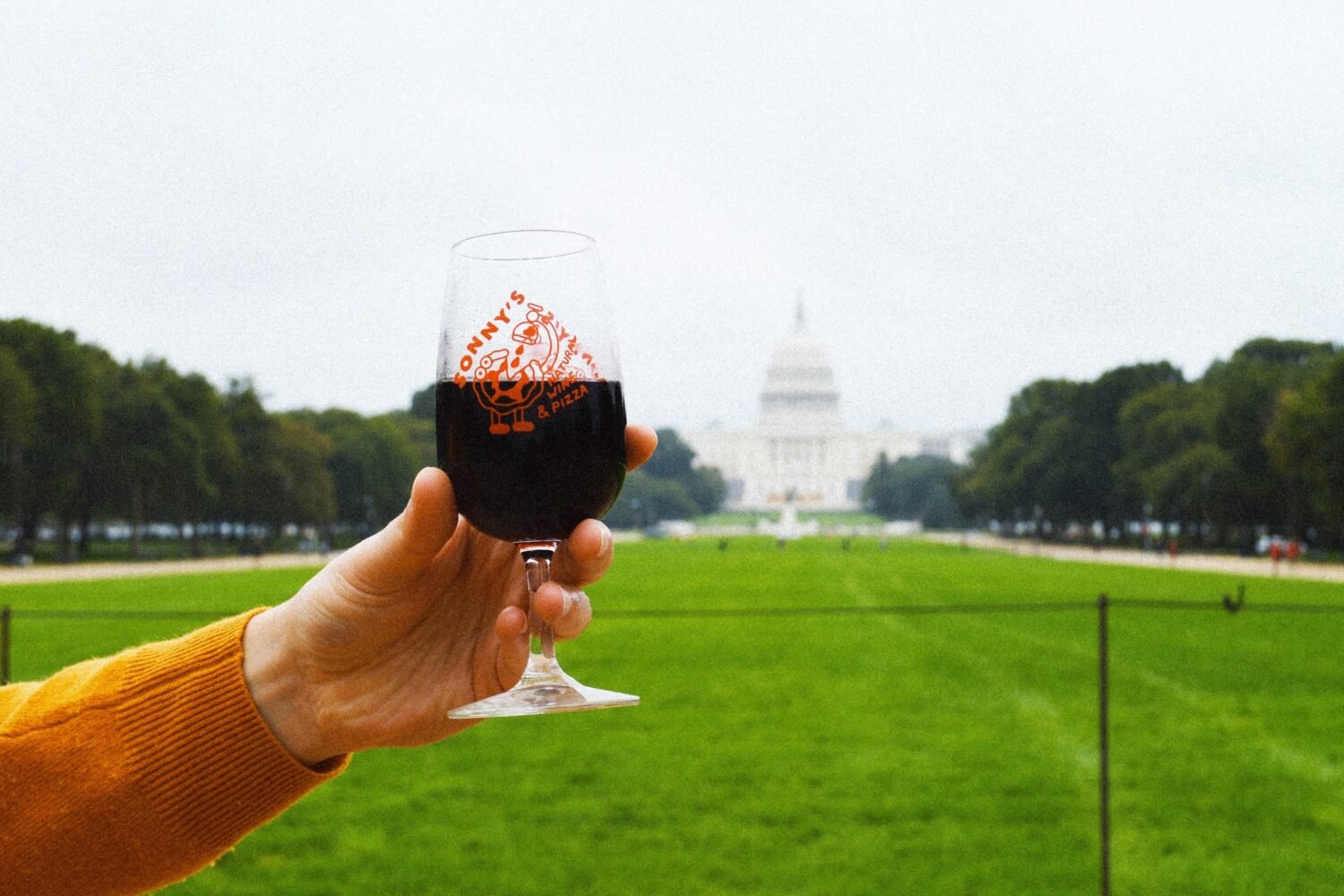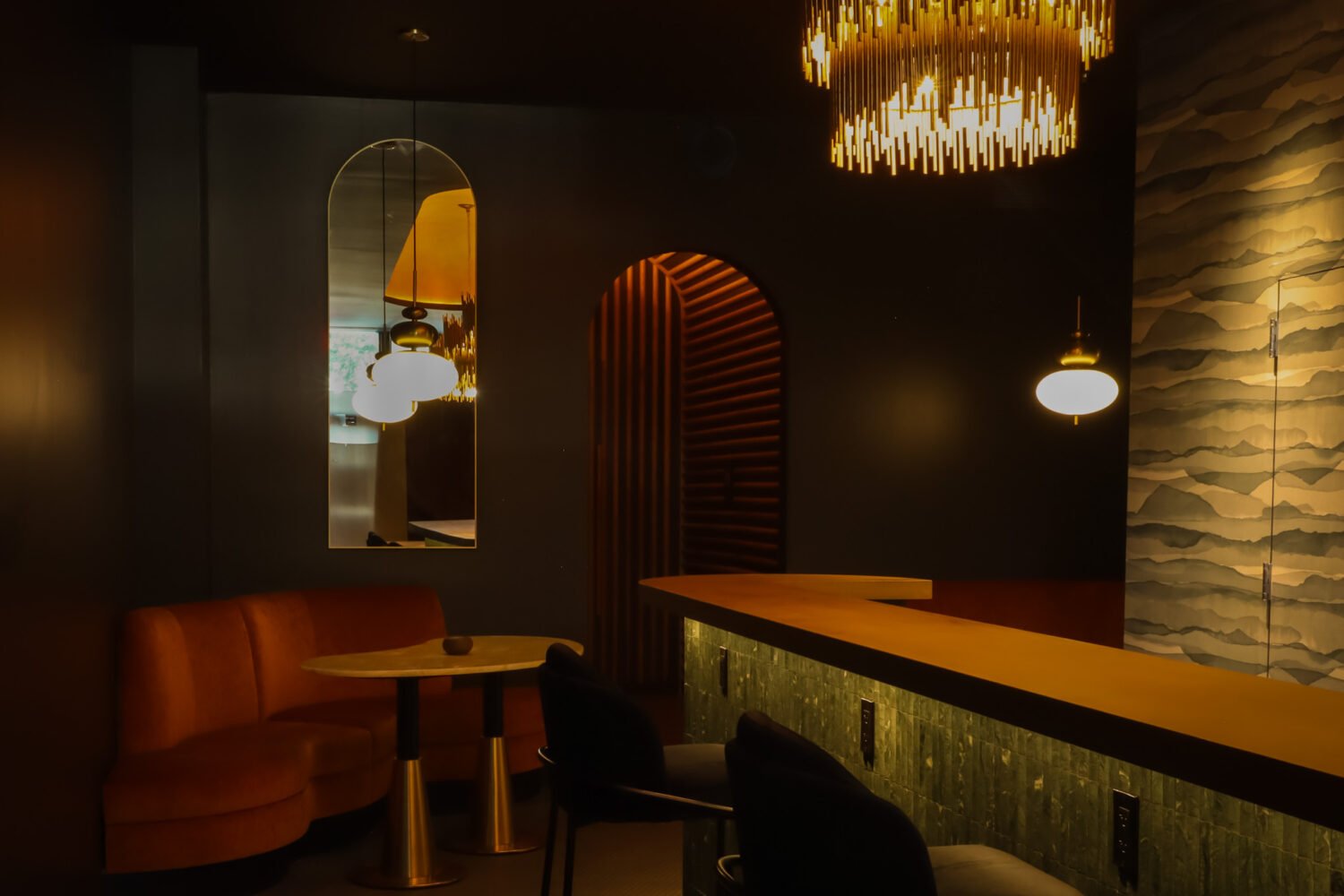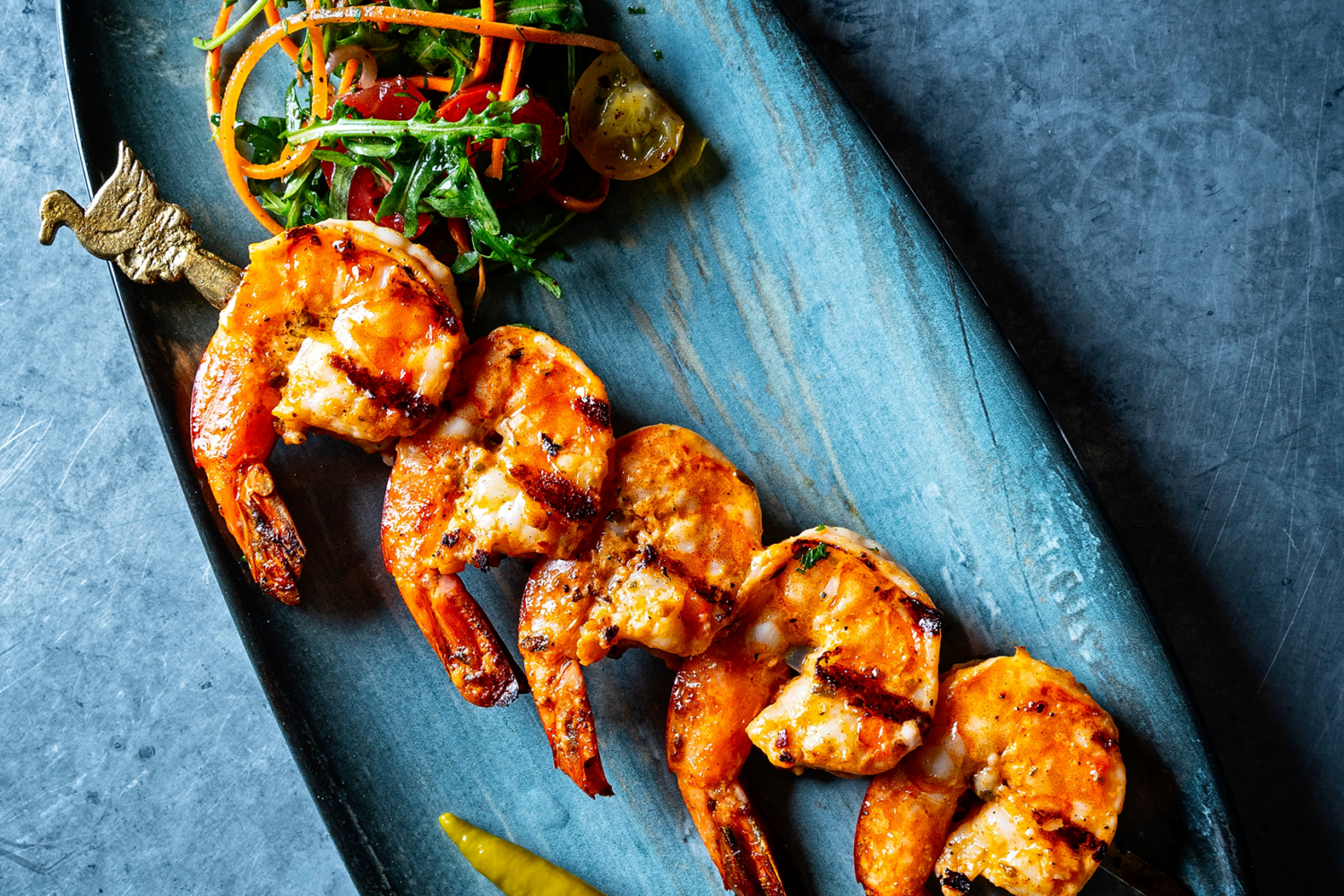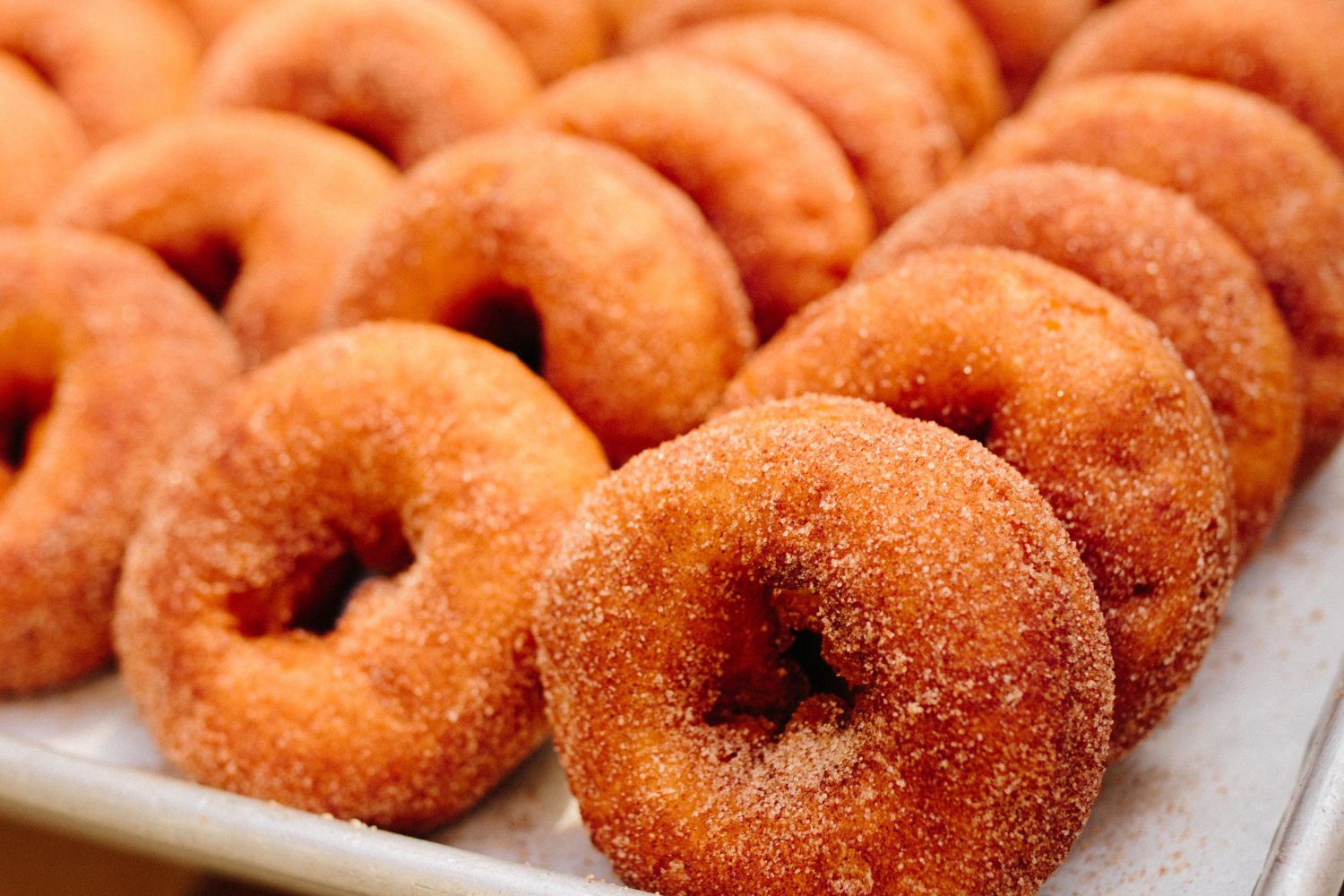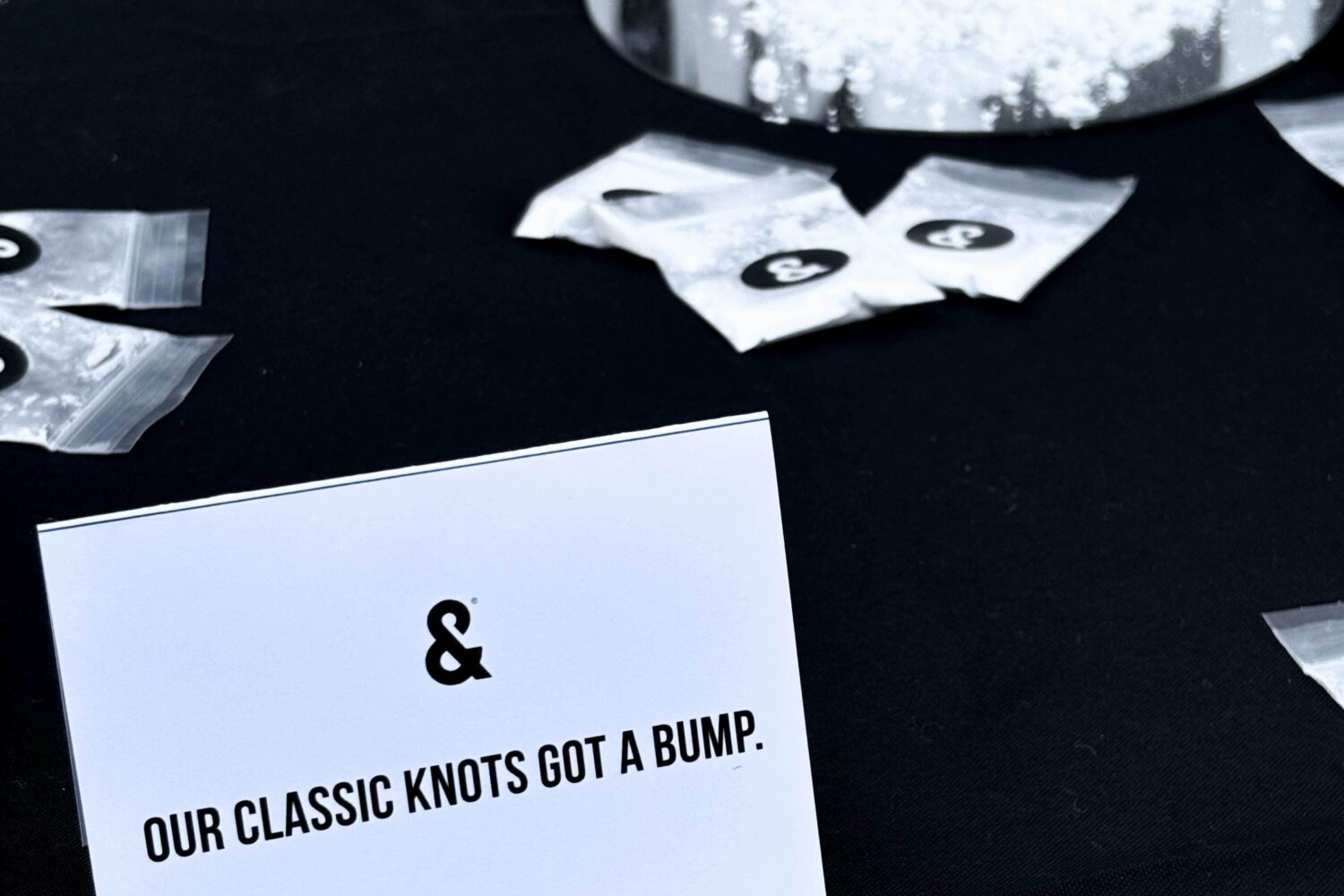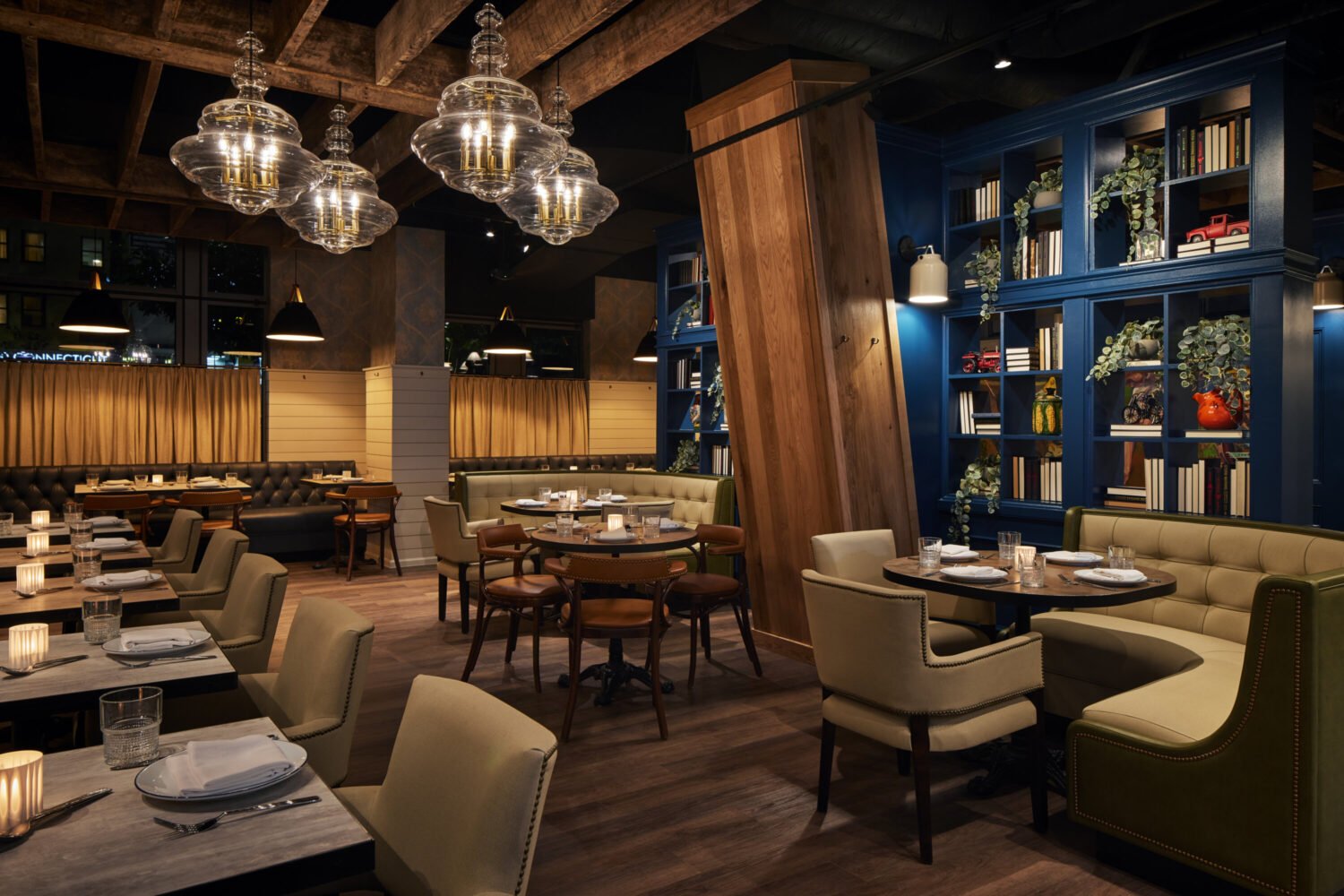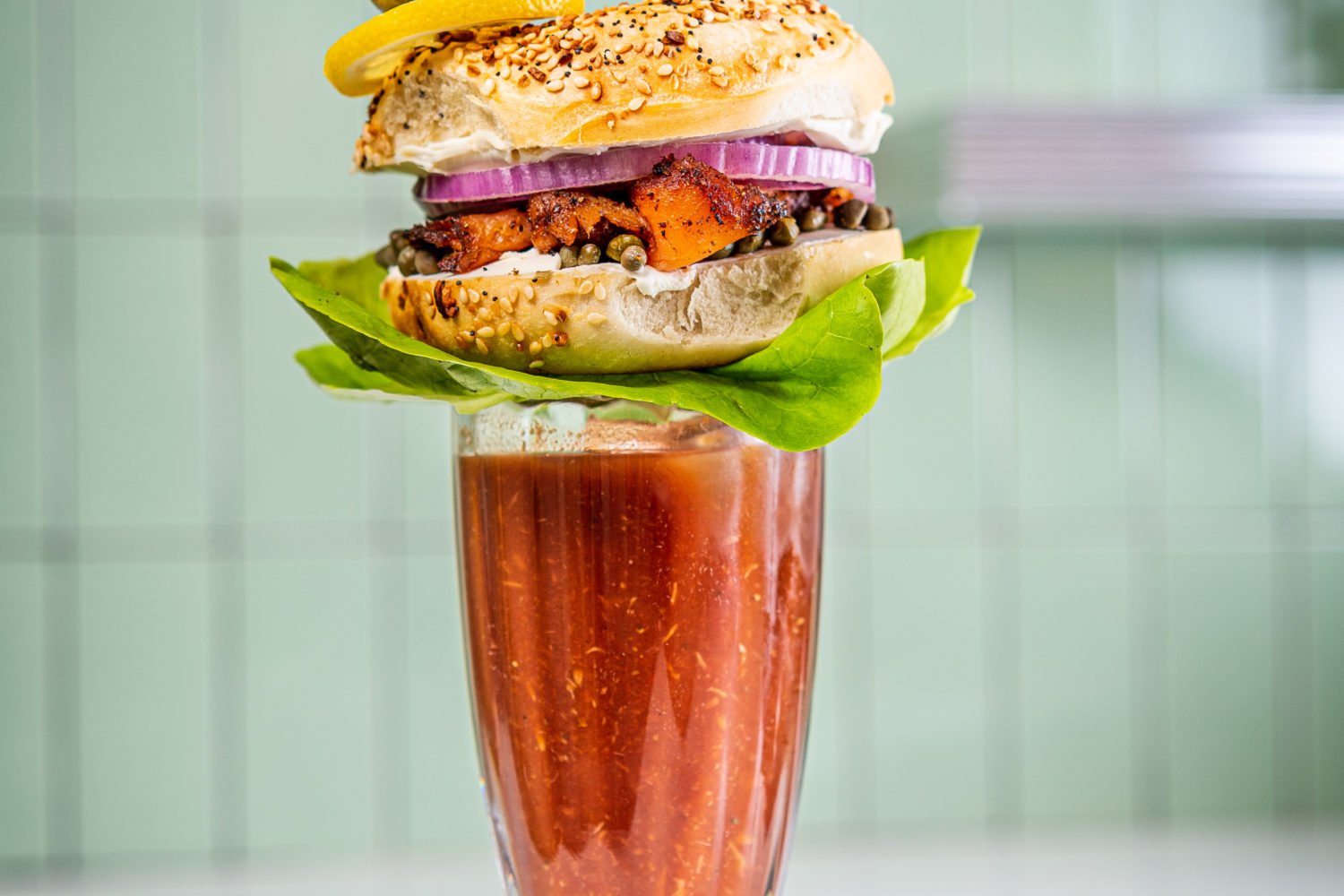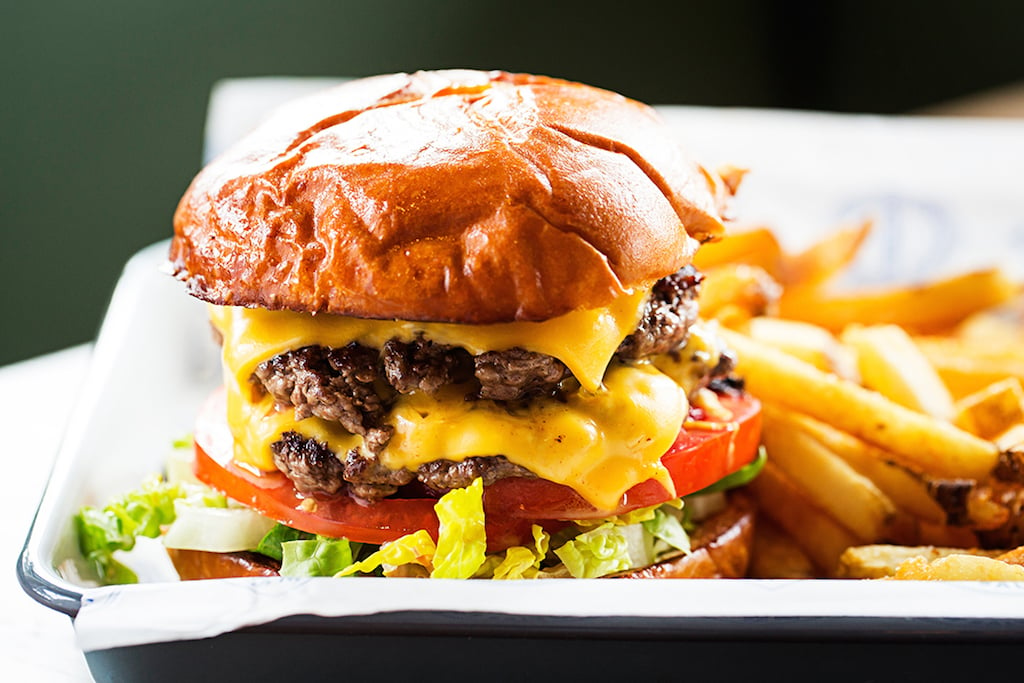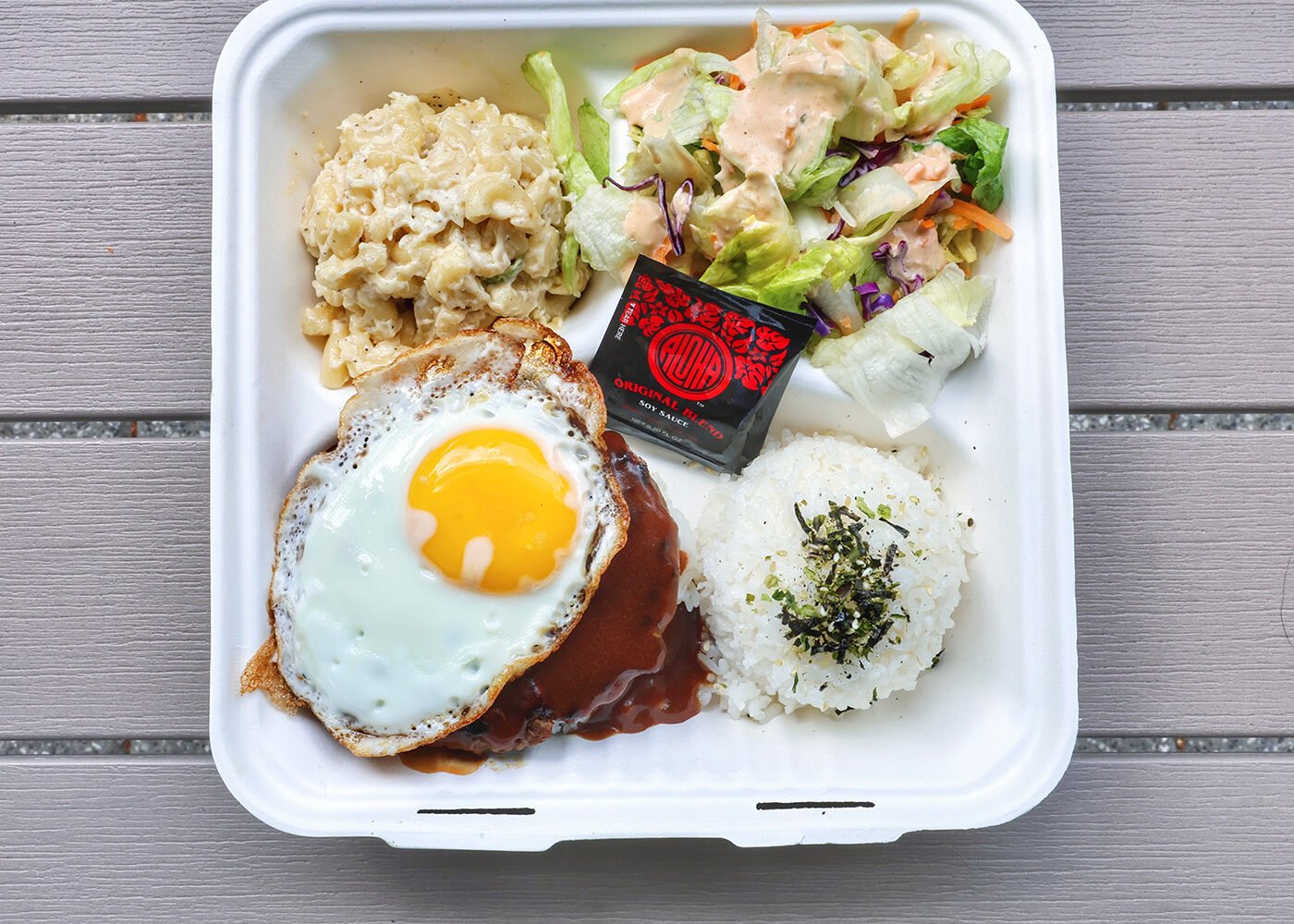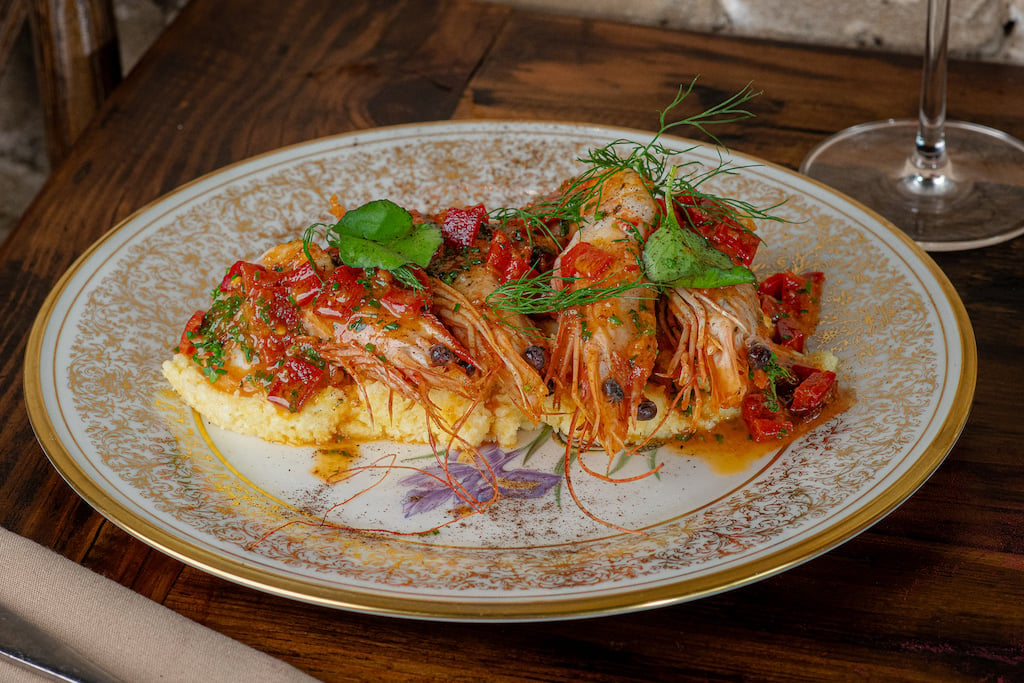Judging by the bustling dining room at Eatonville, residents of the U Street area can’t enjoy too much of a good thing. So what if Busboys and Poets is across the street? There are apparently enough urban hipsters to populate both.
Owner Andy Shallal, the man behind Busboys and Poets’ three locations, prides himself on caring about the community and on his outreach to African-Americans. Restaurants, he says, are about more than food on a plate—which is perhaps why his often include a political and historical perspective.
Publicity for Eatonville makes much of the fact that Shallal fashioned it as a love song to writer Zora Neale Hurston, who grew up in Eatonville, Florida, and attended Howard University. Paying homage to her is admirable, but it’s hard to discern the aim of the decor: The dining room is a riot of splashy murals and mismatched chandeliers, and a grouping of rocking chairs inside a picket fence might make you wonder if you’ve walked into a Disney theme-park restaurant.
The good news is that Shallal has made the kitchen a point of emphasis. After his first choice—chosen Top Chef style by a panel of critics—bolted before the restaurant opened, Shallal tapped the runner-up, chef Rusty Holman, who has proven himself adept in Southern, low-country, and Cajun cuisines.
The gumbo is a deep, rich, manageably spiced stew of rice, crab, andouille sausage, and shrimp. A well-seasoned crust covers the brined flesh of fried chicken, flanked by perfectly cooked collards but dry mashed potatoes. Other successes include pecan-crusted trout (despite a gloppy mustard sauce, which tastes good but could be more refined), a crispy crab burger, and outstanding jalapeño-cheddar grits, which our waiter was kind enough to serve as a side even though they usually come only with the fish and grits.
An early version of cider-barbecue-glazed salmon suffered from a too-sweet sauce, which Shallal says has since been tweaked and now glazes ribs. Succotash also disappoints, resembling a dish of stewed tomatoes and okra rather than lima beans and corn. Creamy mac and cheese lacks salt.
The house-made desserts make for a bright if imperfect ending. A not-too-sweet peach-and-blackberry cobbler sings of summer, though the biscuit sometimes tastes of flour. Lemon pound cake over strawberry-rhubarb purée is satisfying despite the skimpy piece of cake.
Some Northerners assume that Southern hospitality is all fake smiles and sweet tea, and it’s tempting at times to dismiss Eatonville as less than genuine. The overlapping of old and new—tea-towel napkins and Ball-jar glasses in a spanking new dining room two stories tall—tries but doesn’t completely shake the impersonal feel of the space.
But then a server surprises a return customer by complimenting her on her outfit and observing that the woman seems often to wear green. The customer is delighted.
At moments like that, Shallal is right: Some places are more than just food on the plate. It will be interesting to see if Eatonville can fulfill its owner’s grand intentions.

